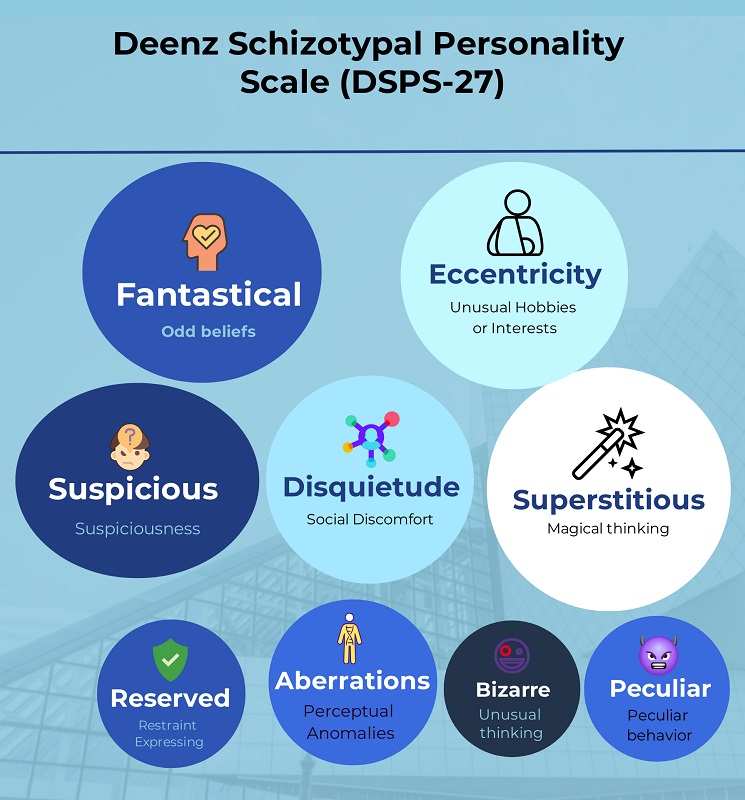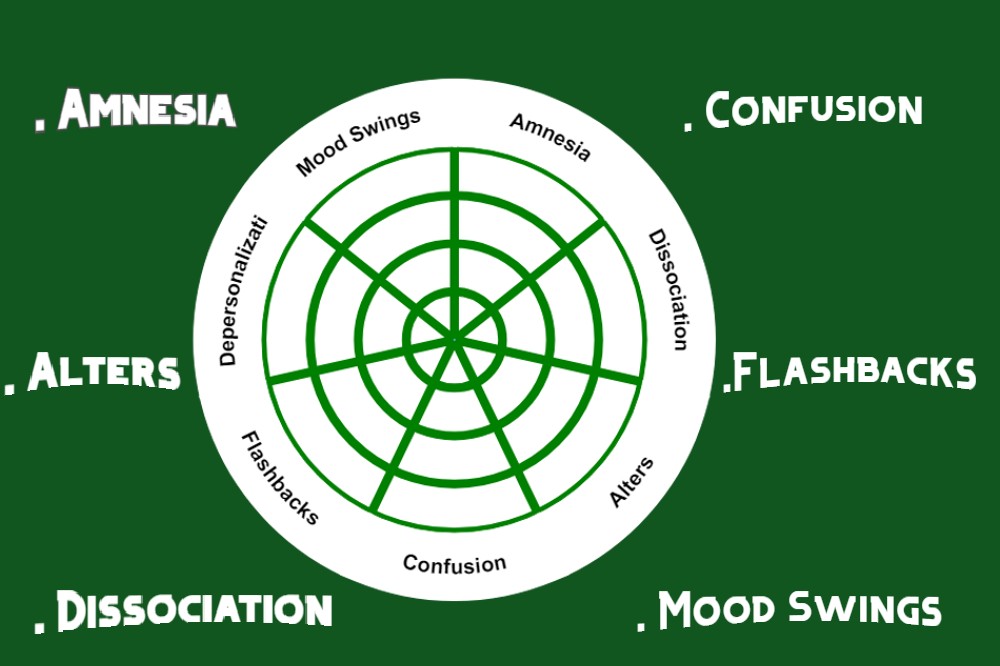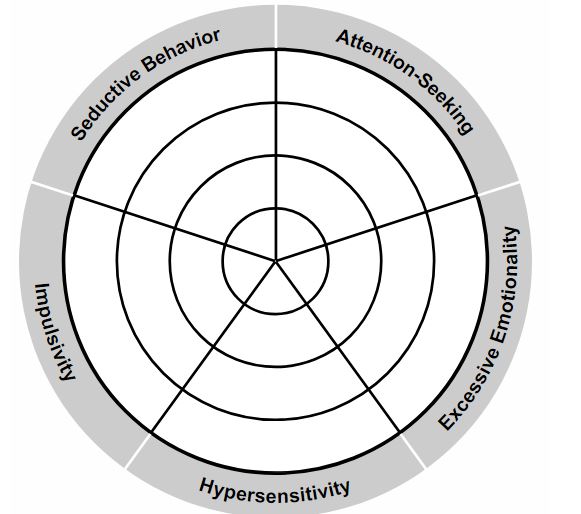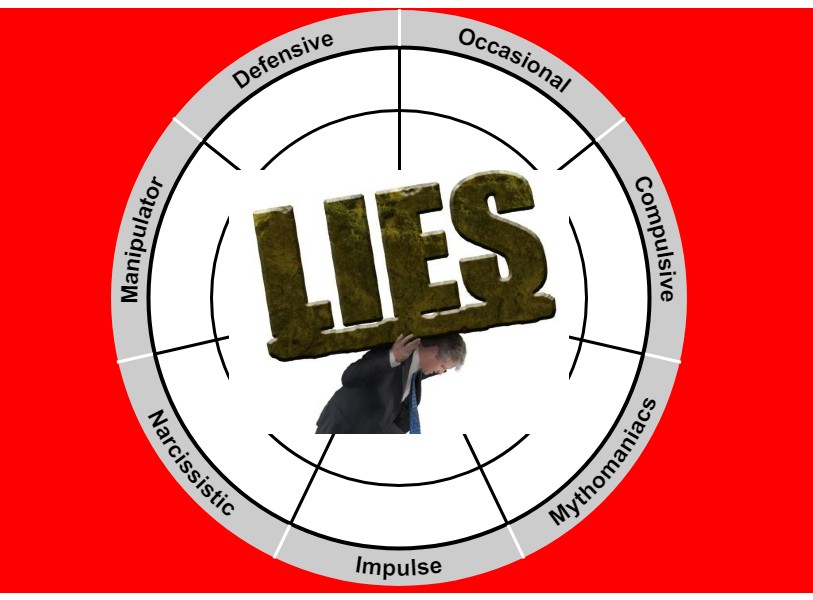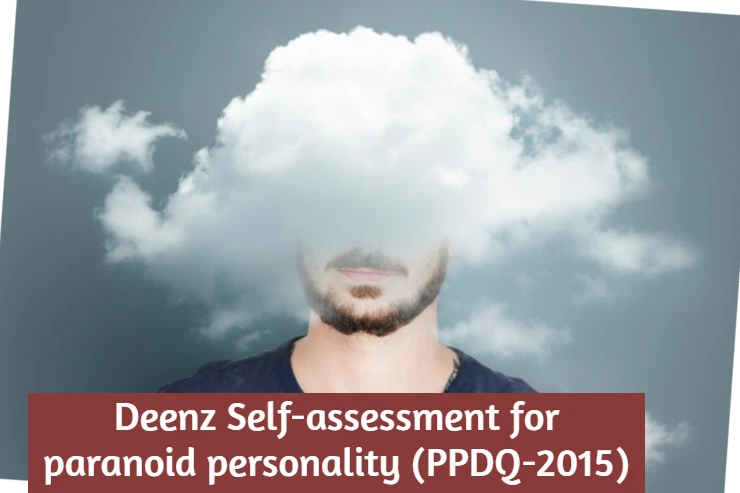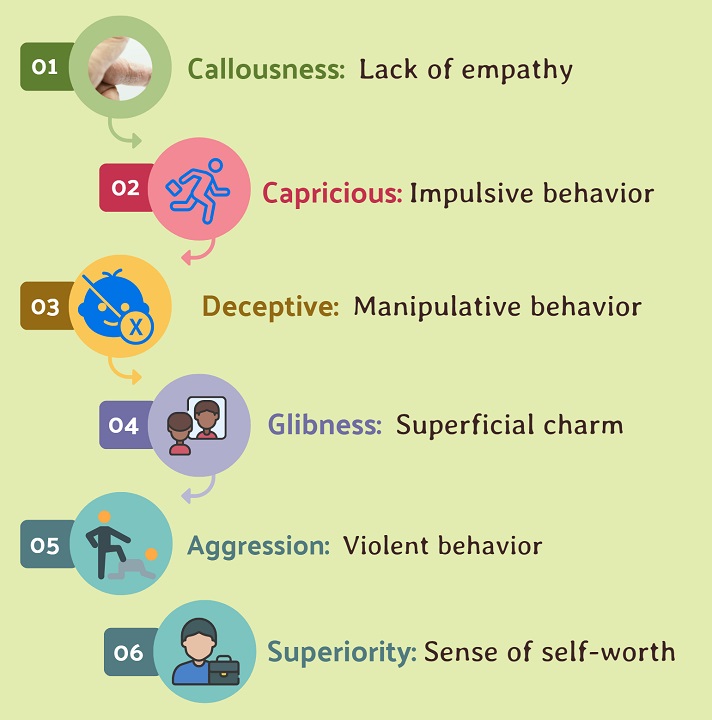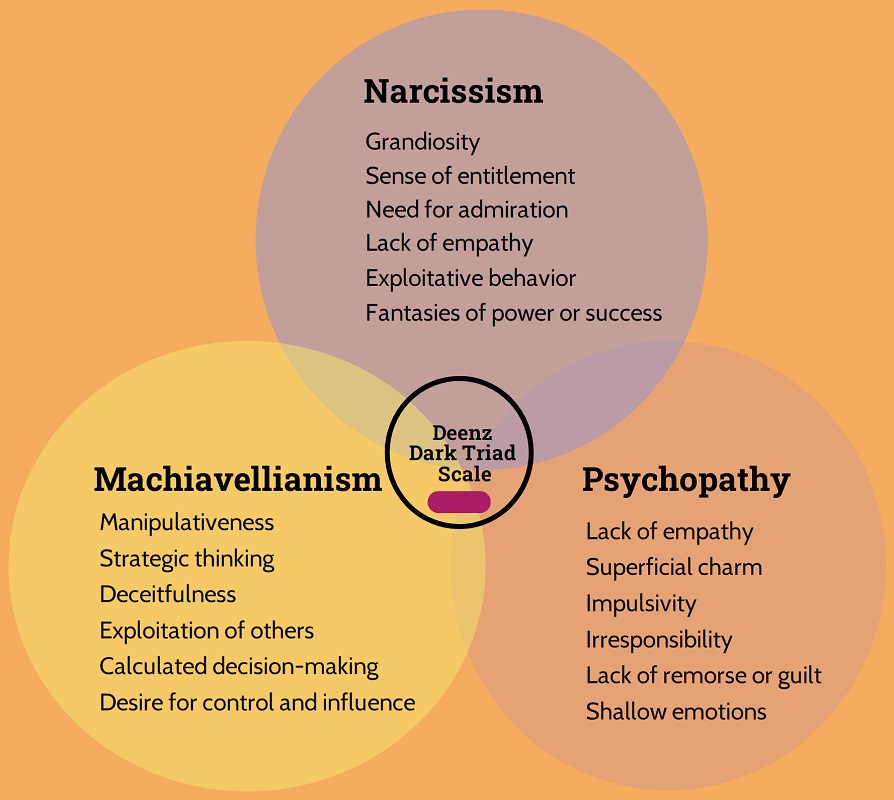Basic information | |
|---|---|
| Statements: | 27 |
| Duration: | 3–6 minutes |
| Type: | Self-assessment Quiz |
| Publishing year: | 2020 |
| Seminal paper: | Dar, Deen Mohd, Assessing Subclinical Schizotypal Personality Traits: Development and Validation of the Deenz Schizotypal Personality Scale (DSPS-27) (February 20, 2024). Available at SSRN: http://dx.doi.org/10.2139/ssrn.4732296 |
Deenz Schizotypal Personality Scale (DSPS-27) is used as a preliminary measure for identifying tendencies or assessing the subclinical traits associated with Schizotypal personality. Subclinical traits fall below the threshold of a clinical diagnosis of Schizotypal Personality disorder. This self-assessment tool or quiz is not designed to provide a clinic diagnosis. Your participation is completely anonymous, we do not store your results for research purposes.
Schizotypal personality is like having one foot in reality and one in a world of fantasy. Schizotypal Personality falls under the umbrella of personality disorders. It is a complex mental health condition that involves social and interpersonal defects, cognitive distortions, and eccentric behaviors. Believing in magic or thinking in unusual ways does not make someone schizotypal [1] Rosell, D.R., Futterman, S.E., McMaster, A. et al. Schizotypal Personality Disorder: A Current Review. Curr Psychiatry Rep 16, 452 (2014). Still, there is a wide range of traits associated with this personality disorder such as odd beliefs, perceptual distortions, social anhedonia, isolation, eccentric behaviors, etc. These traits should also have a significant impact on social, interpersonal, and daily life to be qualified for the clinical diagnosis.
Deenz Schizotypal personality scale is designed to measure subclinical traits among the general population and it helps participants gain insight into these traits and assess the likelihood of exhibiting characteristics associated with Schizotypal Personality Disorder.
Schizotypal personality Facets
Eccentricity(Unusual hobbies or unusual interests) Eccentricity refers to unusual behaviors or an odd way of speaking, appearance, or ideas, these behaviors often deviate from societal norms or expectations. People with schizotypal personalities often show disoriented speech patterns and may have odd or unconventional hobbies or unusual interests.
Superstitious(Magical thinking) People with superstitious beliefs or behaviors stem from cognitive distortions and perceptual abnormalities. A person with a Schizotypal personality might believe in such things that might not be logical and they perceive and behave differently. For example, a person who believes that if he/she walks under a ladder, something bad might happen. he/she may avoid walking under the ladder at all costs even if it means choosing a long route. [3] Eckblad, M., & Chapman, L. J. (1983). Magical ideation as an indicator of schizotypy. Journal of Consulting and Clinical Psychology, 51(2), 215–225.
Aberrations (Perceptual anomalies) Aberrations refer to unusual experiences related to sensory perception. These experiences may include distortions in how a person perceives sights, sounds, or body sensations. A person with a schizotypal personality might hear or see things that others do not.
Bizarre (Unusual thinking) Bizarre in the context of Schizotypal personality refers to the idiosyncratic pattern of thoughts or having thoughts that are different from what most people think. These odd thoughts may include making connections that may seem odd, and reasoning in a way that may be off-topic. A person with this personality may see and talk about the world differently or unusually and it may be hard for others to understand.
Suspiciousness (Suspect hidden motives) Suspiciousness is a tendency to mistrust or be suspicious of the intentions or motives of others. A person with a Schizotypal personality may take caution or be always doubtful about the intentions of others. They tend to be always on guard and believe that others might have harmful intentions without any strong indications. This behavior might lead to paranoia when interacting with others. [4] Phenomenology, Determinants. “Trust and Personality Disorders.” The Neurobiology of Trust (2021): 430.
Reserved (Restraint in Expressing emotions and feelings) People with schizotypal personalities show little or no interest in what is going around them. They may appear unresponsive when interacting with others. They may also appear emotionally plat, indifferent, or exhibit no interest in engagement in social interactions. This behavior leads them to become reserved and restrained from expressing emotions, feelings, and thoughts.
Peculiar (Peculiar behaviors and habits) People with schizotypal personalities tend to behave in a manner that may seem odd to others. These behaviors may include strange or unusual rituals or quirky habits. For example, a person with this personality disorder may have a fascination with collecting unusual objects and spend hours arranging and collecting them. He/she may also tend to avoid eye contact and speak in a disjointed manner. He/she may also display odd gestures or facial expressions that others may find difficult to understand or interpret.
Author’s note
While developing this scale the main purpose was to measure subclinical traits, behaviors, and experiences in college students. By measuring these subclinical traits it makes it easy to identify individuals who may show an inclination toward developing schizotypal personality disorder. Early intervention leads to prevention and this scale as a psychometric instrument may help uncover potential factors and psychological processes. It provides insights into the characteristics that may help in the prevention of developing schizotypal personality disorder.
What if I got a high score on this self-test?
This self-assessment is not designed or intended to be used as a diagnostic tool for making a proper diagnosis of schizotypal personality disorder. If you believe you are experiencing symptoms associated with this disorder, you must consult a mental health professional for proper treatment.
A high score on an Schizotypal Personality screening quiz, does not necessarily mean that you might have schizotypal personality disorder. Please keep in mind that using self-assessment tools has proven to be a beneficial first step toward getting proper treatment from a mental health professional.
References
Rosell, D.R., Futterman, S.E., McMaster, A. et al. Schizotypal Personality Disorder: A Current Review. Curr Psychiatry Rep 16, 452 (2014). https://doi.org/10.1007/s11920-014-0452-1 ↩
Waldeck, T. L., & Miller, L. (2000). Social skills deficits in schizotypal personality disorder. Psychiatry Research, 93(3), 237-246. https://doi.org/10.1016/S0165-1781(00)00122-0 ↩
Phenomenology, Determinants. “Trust and Personality Disorders.” The Neurobiology of Trust (2021): 430. Books.google.co.in ↩
Eckblad, M., & Chapman, L. J. (1983). Magical ideation as an indicator of schizotypy. Journal of Consulting and Clinical Psychology, 51(2), 215–225. https://doi.org/10.1037/0022-006X.51.2.215 ↩




